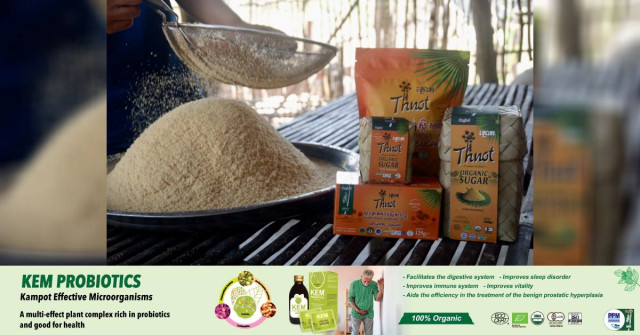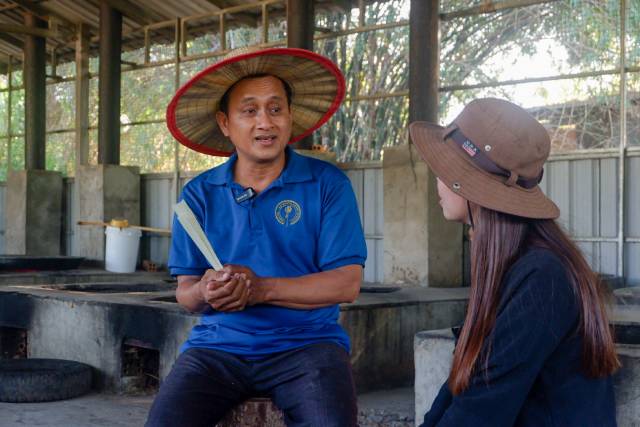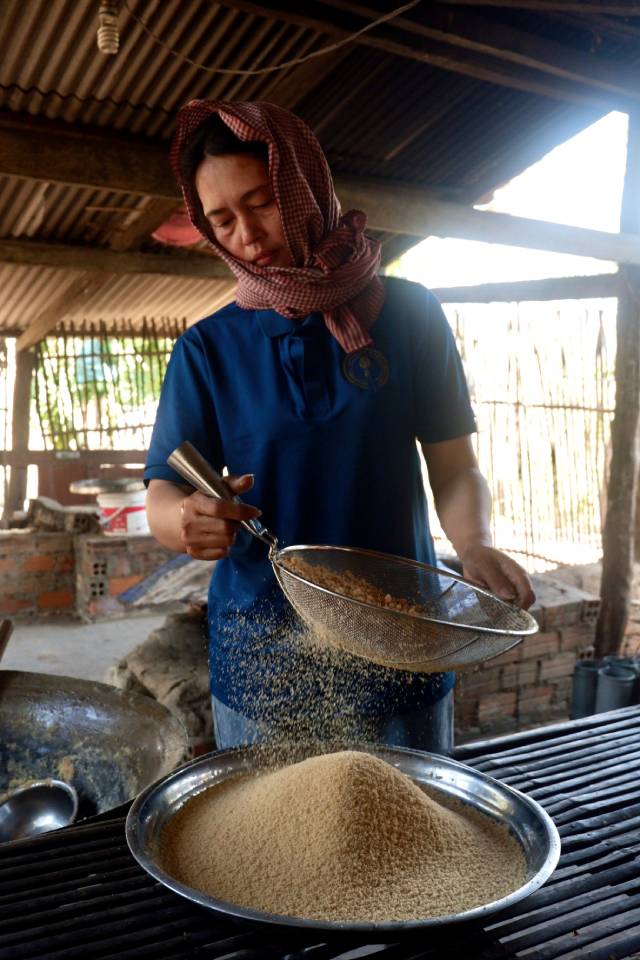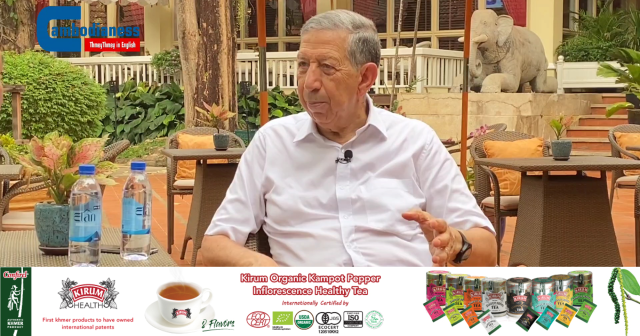Organic Palm Sugar Must Come from Natural Trees: Confirel

- By Meng Seavmey
- February 21, 2024 2:10 PM
KAMPONG SPEU – Whether it is palm sugar powder, paste or candy, Kampong Speu province offers the best quality from organic palm trees, earning the geographical indication (GI) status for the products.
Confirel, an organic Khmer GI food manufacturer, is working with a community with 25 families from five villages of three communes in Oudong district to produce palm sugar powder for domestic and international sale.
 Confirel’s deputy managing director Hym Piseth. Photo_ Meng Seavmey
Confirel’s deputy managing director Hym Piseth. Photo_ Meng Seavmey
As the palm tree is the symbol of the province, local people are entrusted to extract the organic palm juice to make the powder naturally, said Hym Piseth, Confirel’s deputy managing director.
The five villages have the most potential for organic palm juice, as they only take juice from the palm trees in the forest or anywhere connected to land where chemical are not used.
_1708491864.jpg) Photo_ Meng Seavmey
Photo_ Meng Seavmey
“We don’t want any substance mainstreaming into the palm trees, thus into the juice. Otherwise, we wouldn’t get organic palm sugar,” he said.
Each palm tree is coded by the company to ensure the family’s daily records and production.
“We have our team meet the community ever day to make sure that the juice they take is really from the palm trees that are growing naturally and unattached to any plantation with chemical substances,” Piseth said.
_1708491898.jpg) Photo_ Meng Seavmey
Photo_ Meng Seavmey
Long-time knowledge of palm sugar productivity
When thinking of palm sugar, the Kampong Speu’s local sugar must come to mind, as it is considered as the top quality in the country. Local producers in the community usually make palm sugar in a traditional way: palm sugar paste or candy.
However, sugar paste cannot be packaged and stored for a long time. It only lasts for six months at most, so the company regrouped the suppliers and trained the community to make the powder instead, which is packaged to last up to three years.
The company buys palm juice from some villages, and buys powder or paste from some other villages, so that the company can expand their work more widely with local people.
“This is to extend the scope of working with local people in the villages nearby and to expand the production capacity,” he said.
The organic palm sugar project aims to introduce Cambodian palm sugar more exclusively to international markets and to keep the tradition of palm collecting. The project also provides stable incomes for local families.
 Photo_ Meng Seavmey
Photo_ Meng Seavmey
To be a palm sugar supplier, one must be a resident in the province and be knowledgeable about palm sugar production, Piseth said.
They have to be trained by the company in producing organic palm sugar, and follow the criteria of organic production.
Palm trees provide more than juice
Besides its juice for making sugar, palm trees also contain palm sap which can be fermented into palm wine, palm syrup and palm candies.
Palm sap is used to make wine with the maximum palm aroma perseveration by Confirel. Pineapple and ginger create more choices for the wine.
The traditional choice of taste is Tnot sparkling (Tek Tnot Chou) that is popular among Cambodian people, especially the locals. The drink comes from the wine with the addition of maximum alcohol degrees of two to three percent.















